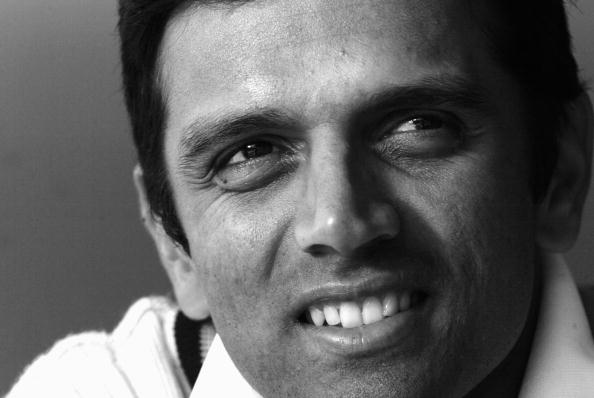Commentary was nice but I enjoyed coaching most, says Rahul Dravid

Getty
Rahul Dravid has stated that he has been enjoying his coaching role more than his brief commentating stint post retirement. India’s former middle-order spine also threw light on failure, the importance of right attitude towards them, and of course on the 2001 Kolkata Test against Australia.
Beyond his records and brilliant batting, Rahul Dravid was known for his immense sincerity and passion towards the game and there was no way that the cricketer could stay away from the game for long. Hence, after trying his hands in commentary shortly following his retirement, he sought a job on the field and ended up being India’s junior coach.
He felt an instant connect with the job. Indian team’s youngsters have proven to be the solid base of the world dominance the side promises now. And behind the emergence of the likes of KL Rahul, Karun Nair, Shreyas Iyer, Washington Sundar and many more, lies the huge contribution of Dravid.
“After I was done playing, I did a few things – commentary, doing corporate speeches. But the thing I enjoyed the most was coaching.
Dravid is perhaps the best man for the job, as no one can teach young cricketers how to deal with failure as effectively as him. Calling himself a failure, Dravid quickly pointed out that he couldn’t cross fifty in 410 matches out of the 604 times he played for India. However, he also stated that it is one’s attitude towards failure that makes them great.
“We have often heard ‘failure is the stepping stone to success’. But it’s just that you can fail badly and can also fail well. Failing well is very, very important. When we fail, we often tend to brush things under the carpet. We blame someone, we always tend to find an excuse. When you do things like that, you lose an opportunity to fail well. When you fail, you have an opportunity to understand yourself,” said Dravid.
He followed his take on failure with one of the best examples one could give- the 2001 Kolkata Test.
“In the first three days of the (2001) Calcutta Test match, we were sort of completely beaten. My form was not good. In fact, I was demoted to No. 6 in the batting order. I want to take my mind to the start of the fourth day. It was quite funny because
“I said to myself: ‘I am struggling so much. So there is no point about worrying about what’s going to happen in the future. I was not willing to think whether I was going to be dropped or we were going to lose’. I said: ‘I am going to just focus on the simplest thing’. And in cricket, it’s just focusing on one ball at a time. For me, it was a really good lesson that day,” he added.
